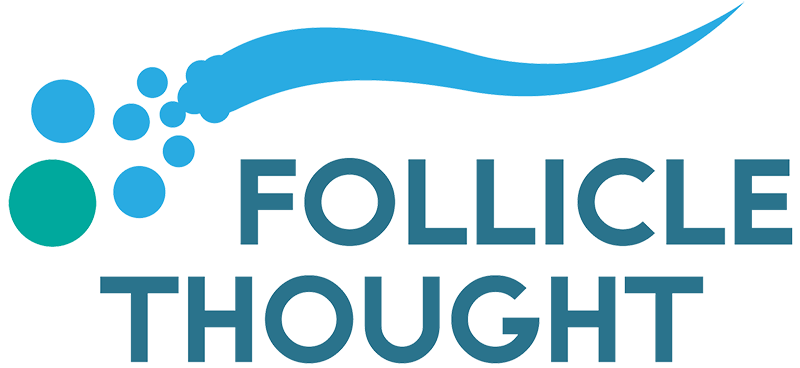Q32 Bio Presents Data for Alopecia Areata Treatment at AAD 2025
Q32 Bio presented results from their SIGNAL-AA earlier this month at the American Academy of Dermatology (AAD) 2025 meeting for their novel alopecia areata (AA) therapy bempikibart.
What is Bempikibart?
Bempikibart is an experimental monoclonal antibody drug that targets two specific molecules in the body: the alpha receptor of interleukin-7 and the thymic stromal lymphopoietin (TSLP) pathway, helping to restore T-cell balance in alopecia areata.
Bempikibart blocks the IL-7 receptor alpha (IL-7Rα), a protein that helps T-cells (immune cells) survive and multiply. In alopecia areata, certain T-cells mistakenly attack hair follicles.
By blocking IL-7Rα, bempikibart:
- Reduces harmful T-cells: It lowers the number of overactive T-cells (like TH1 and TH2 types) by ~20-30%.
- Resets immune memory: It may rebalance “effector memory T-cells” (aggressive immune cells) and “regulatory T-cells” (cells that calm inflammation).
It also blocks the TSLP pathway. TSLP is an immune signal that triggers inflammation. By inhibiting this pathway, bempikibart:
- Lowers inflammatory biomarkers: It reduces levels of Th2 signals like TARC, IgE, and eosinophils (markers linked to allergic/inflammatory reactions).
- Prevents “double attack”: By blocking both IL-7 and TSLP, it stops two pathways that would otherwise work together to drive hair follicle destruction.
Trial Design – SIGNAL-AA
Q32 have posted a press release summarising the trial results presented at AAD 2025.
- 33 patients, defined by the Severity of Alopecia Tool (SALT) as having severe alopecia (≥50).
- Patients were randomly assigned to an every-2-week schedule of 200 mg bempikibart administered subcutaneously or a placebo.
- The study lasted 24 weeks, but efficacy and safety were monitored for an additional 12 weeks.
- Primary endpoint: Percentage change in SALT at 24 weeks
Trial Results
On-Treatment Results (24-26 weeks)
- Mean SALT score reduction:
- Week 24: 16% reduction in patients with severe/very severe AA (SALT 50-100) vs. 2% for placebo.
- Week 26: Improvement deepened to 18% reduction vs. 2% in placebo.
- Severe subset of patients (SALT 50-95): Greater reductions of 25% at week 24 and 27% at week 26.
- Clinically meaningful response:
- Week 24: 9% of all treated patients achieved SALT ≤20 (≤20 hair loss) vs. 0% placebo.
- Severe subset of patients: 13% achieved SALT ≤20 at week 24, rising to 21% by week 26.
Statistically significant improvements compared to the placebo were observed for the primary endpoint.
Post-Treatment Follow-Up (Up to 55 weeks)
- Continued improvement:
- Week 36: Mean SALT reduction of 20% across all treated patients, deepening to 28% in the severe subset.
- Week 55: Two patients maintained or improved responses ~7 months after stopping treatment.
Durable Responses
- All 12 patients with initial responses maintained or improved post-treatment, with median follow-up of 41-44 weeks.
- 58% (7/12) showed additional hair growth after treatment ended.
Safety and Biomarkers
- Safety: No Grade 3+ adverse events or treatment-related viral infections.
- Mechanism validation: Reduced Th2 biomarkers (TARC, IgE, eosinophils) and CD3+ T-cell modulation confirmed potenti IL-7/TSLP inhibition.
Reflections
One of the novel results of this trial is the fact that it continued to work for many patients even after the treatment ended. This suggests that it doesn’t just suppress immune activity but may help the body to balance its T-cell levels. Current treatments like JAK inhibitors must be taken continuously to maintain results. Bempikibart’s sustained efficacy after dosing ended suggests a potential shift from chronic treatment to remittive therapy, addressing a major limitation of current JAK inhibitors. Larger trials are (Part B and open-label extension) are underway to confirm long -term benefits.
Q32 Bio has gone all in the on the development of this drug – in February it announced a restructure to focus solely on bempikibart, discontinuing its Phase 2 renal basket clinical trial of ADX-097 and reducing personnel to increase their cash runway.
What do you think about these results? Let us know in the comments.
Posted in Alopecia Areata, Bempikibart, Q32 Bio


I’m in my mid sixties. By the time these JK inhibitors go through the testing process to be available I will probably die of old age. Also, when the do come available they will only be affordable for the rich until the market reduces prices, which will take years.
Very very positive l look forward tomore information